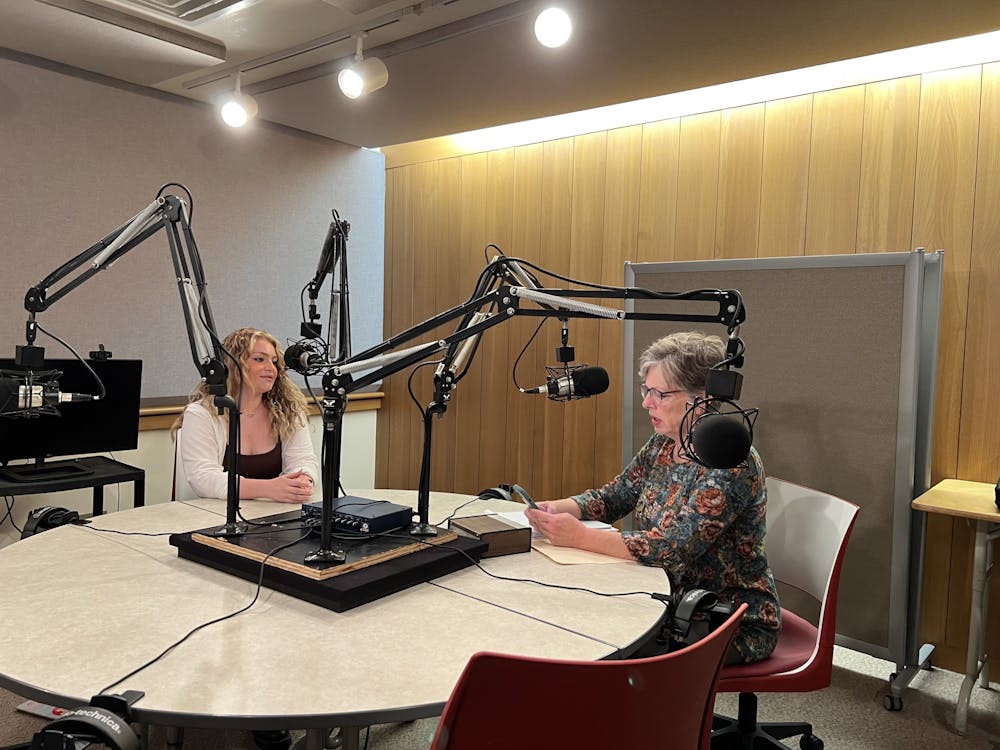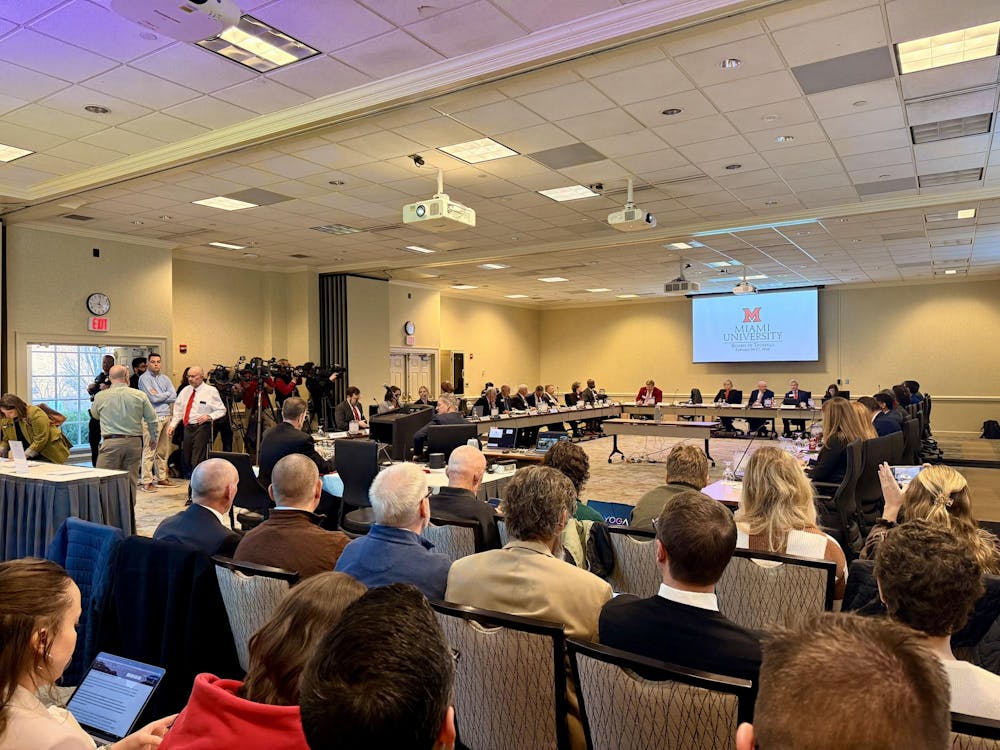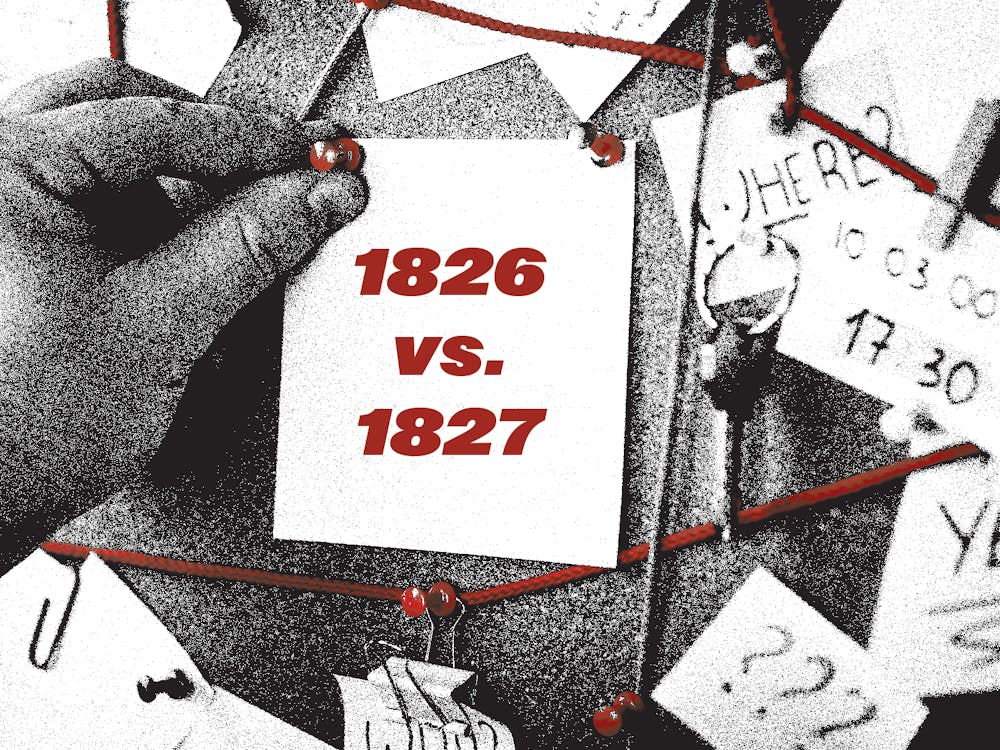The Miami Student’s podcast “People and Policies” focuses on Oxford’s local election cycle, featuring conversations with candidates about various issues relevant to students, faculty and residents.
On this episode, Staff Writer Raquel Hirsch sits down with Talawanda School Board candidate Kathleen Knight-Abowitz who has been a member of the board since 2020. The two discuss Knight-Abowitz’s history on the board, Talawanda’s finances, various district policies and more.
Editor’s note: This conversation has been edited for concision. Listen to the podcast for the full conversation.
Hirsch: What inspired you to run for Talawanda School Board in the first place, and why did you decide to run again?
Knight-Abowitz: I was originally inspired by probably two things. One is I, as a citizen and as an educational theorist [and] scholar, was interested in how democratic forms and structures of education work, so [I am] interested in democracy and schools. And then I particularly got interested in our district, as a parent, just being part of the school system and the community that it serves and having my two kids go through the school district and then becoming active as an activist and the community.
How has your experience teaching here at Miami in educational leadership helped you be successful in your role on the school board? And how would you say that this sets you apart from other candidates?
The kind of knowledge that I bring is from knowing a lot about the history and the contemporary kind of issues facing public schools and education in the United States. I also just am in the room with a lot of school leaders. Because of my job I teach courses that are taken by current principals, and assistant superintendents, and superintendents, and teachers, and so I listened to them, and I know a lot about what conditions they are facing in schools.
I think probably listening to educators in my classroom is one of the great things that I bring to the job, because it makes me very familiar with the ins and outs of how actual schools work and to have a knowledge base to draw from both in terms of Ohio schools as well as, more nationally, broadly, [in] US schools.
One of your priorities that you've touched on [in your campaign] is transparency, especially with finances. How do you plan on managing the budget deficit that Talawanda is currently facing in terms of transparency?
We've been talking about this deficit since I've been on the board and the previous board also saw it coming. The way we've dealt with it, I think, is the way that we should continue to deal with it.
I don't have any grand plans for changing. When the levy failed to pass in our school district, we put together a three year budget cutting plan and we did that through a process that allowed folks to weigh in, and we also knew that conditions would change and so we would have to revisit the plan.
Enjoy what you're reading?
Signup for our newsletter
Can you talk a little bit more about where that plan is at and potentially things that have fallen through or things that you want to look to change?
I think that we have done a lot of things in year one of the three year plan that make a big impact on kids and a couple of those things are pay to play. Playing sports, being in the band, other things that are really vital to a positive student experience, we are now charging for.
That's unfortunately a pretty commonplace practice in this state and many others where you run out of budget money, but these are things that families want to have for their kids, and so you do it on a charge basis.
The other cut that we've made that's very impactful is, of course, busing. And that's one that I know a lot of us lost sleep over because busing is a high ticket item … I think everybody ought to have access to busing, but the truth is, that the ridership rates in high school are the lowest of all the levels, of course that makes sense. But elementary school parents are really strapped and some families are really, really struggling to make this work and even those that are making it work, it's very stressful and challenging [for them].
When we get to year three, we are slated to cut art and music teachers out of the elementary buildings, among a lot of other potentially damaging cuts. And so our hope is that we don't have to get to year three and that we're able to pass revenue before then.
Are you hoping to see another levy on the ballot or a form of a new tax to kind of remedy the situation?
Yeah, I am. I think what differentiates me as a candidate from some others maybe is that I've just said that outright … One of my priorities if I'm reelected in the next four years is to get a new major revenue stream coming in. That would either be a levy, like a property tax levy or an income tax. It's premature to say when that should be or how much that should be and it's certainly premature now to say what form that should be. … We would look at a revenue package that is really not just passable, but meets our needs and is fair, or seems fair.
What would you say is the biggest issue facing Talawanda School District currently, and then where would you want to begin, should you be reelected?
One way to obviously answer your question is to say money. And we're in a budget deficit and a board is uniquely responsible for the financial solvency of a school district. But I would say that's an obvious answer, and the less obvious answer is that we are going to start losing good teachers and good administrators, and families, the longer this budget deficit goes on, and so the budget deficit is actually the obvious thing. And underneath that is sort of the quality of the school district overall. And the quality of any school district is always its people first.
So my final question for you is reflecting on your role in the past four years: What has been something that you are most proud of?
I think that one of the most mundane things that a board does, but it's probably a high impact thing, is building new buildings and rehabbing buildings … but the thing that our board has done in the last four years that's probably had the biggest impact on student wellbeing and happiness is the Marshall Elementary renovation and building project. And so we took a really old building for a school that means a lot to that community and the families that have served for a long time, and we made and we made a new building.
It's such a regular, run-of- the-mill thing to say, and I have no individual power over that happening, but that's what a good school board does. That's what [a] regular flow of predictable money allows you to do. That's what being fiscally responsible allows you to do is to build the structures and replace the things that need replacing so that good teaching and learning can continue to happen.




